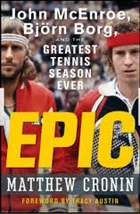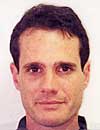Long Road to Greatness
Matt Cronin

It's been almost two years since Alcaraz first won a Grand Slam. Then, he was a fresh-faced teenager who grabbed the crowd and the title with his flashy shot-making at the 2022 U.S. Open. The following year, he showed he could take on the greats with an enthralling five-set victory against Novak Djokovic in the final of Wimbledon, capturing his second major title.
Now, the Spaniard has won four Slams, and there's talk about whether he is on his way to becoming one of the greats himself. At this year's Wimbledon, Alcaraz smoked former No. 1 Djokovic 6-2, 6-2, 7-6 [4] in the finals on the grass. Together with his victory at the French Open on clay a few weeks before, it has firmly established him as the current player to beat in the men's game.
But being considered an all-time great is a much more difficult feat than it used to be, thanks to the incredible era of Roger Federer, Rafael Nadal and Djokovic that recently unfolded, with each repeatedly breaking Grand Slam records and Djokovic currently having 24 Slams and the record for most weeks at No. 1 in the rankings.
Alcaraz's numbers right now are small by comparison. As he told the crowd at Wimbledon, he doesn't yet consider himself a "champion" compared to the game's legends.
But he's got things going for him as he looks to change that -- his game is already being compared to Federer, Nadal and Djokovic. And like them through their careers, he's still making improvements. He himself has said he wants to play like Roger.
He can hit almost any shot, and has fantastic movement. His court coverage seems the best of all the top players.

He can attack and he can defend. He's got spin, slice, and flat, off the forehand and the backhand. He's got great disguise, especially with his forehand, which he can take back and then, in a second, unveil his terrific dropshot.
Against Djokovic in the Wimbledon final, his forehand was supersonic, exploding off his racket. Some were flatter, some more looped, so many found the lines. Then suddenly he would hit incredible drop shots with a soft touch, intention and natural confidence.
He has great approach shots and can put away the volley. His serving is getting better all the time.
He does have a very good return, but he probably knows that to win more Slams, he is going to have to return deeper and harder. Most of all under that oncourt smile, he has a fierce, fierce intensity. Occasionally you can see it on his face.
While it seems--and is --amazing that the great players such as Djokovic, Nadal and Federer won so many Slams, they weren't dominant from the start of their careers. They all lost, in various events, but all of them improved year after year.

Djokovic is still a top player at 37. But when he won his first Slam at the 2008 Australian Open, his forehand wasn't that fantastic.
Over time, he changed the shot into a weapon. His backhand is arguably the best ever. His serving has gone up and down but he has changed his motion several times and it has also become a weapon.
Nadal, who has won 22 Grand Slams --14 at Roland Garros--was so consistent with his massive forehand as a teenager, but his two-handed backhand often fell short. Eventually, he started to hit it harder and adding variety, hitting it down the line more and slicing it.
Federer had so much variety from the start, but had a tough time with his one-handed backhand on high balls, especially on the clay, getting pushed back on that wing. Yet eventually, he moved more forward and hit it earlier, a change which helped propel him to more Slams and a return to No. 1 in the rankings following his first knee surgery. Federer finally also changed his racquet, but as he said, it took him years and years to master it.
A big challenge for Alcaraz has been consistency. Many people can win when they are nearly perfect, but to do that, week after week, is almost impossible. Having played a few seasons on tour, Alcaraz is getting better emotionally during long contests and big occasions.

Back at the 2022 U.S. Open, Alcaraz was at the top of his game and beat Casper Ruud in four sets in final, hitting volleys and winners.
But during the Roland Garros final, Alcaraz was down against Alexander Zverev, one to two sets, making errors and looking confused. Then he switched on, rarely missed a shot and won it again, 6-3, 2-6, 5-7, 6-1, 6-2. K-Boom. A while ago, he might not have turned that one around.
What does Carlos himself say?
"I'm trying on the moment just to be aggressive, just to go for it, play my style, go to the net, dropshots, hitting big shots," said the player known for his smile on the court. "Because if I lose it, if I miss it, my feelings are really good. It doesn't matter if I lose, it doesn't matter if I miss it, because when I go for it, the feelings are much better if I go defensive and lose it anyway. So in those moments my team are telling me to go for it and myself."

In the semis against Daniil Medvedev at Wimbledon, Alcaraz locked in, winning it in four sets. Even when he was irritated, he kept competing. The wizard can come back, to be more effective, and try different shots. Then when his game is back again, he relaxes.
"I got a smile on my face doing disasters sometimes, I'm going to say, or fun shots," he said. "But that moment I was feeling really calm. I was feeling that I can do this kind of shots. I got the confidence that when I'm going to hit it, these shots, I think that it's going to be. Sometimes it's disaster. But, yeah, help me a lot to relax, smile, that I'm having fun on the court."
As he said, "nerves are normal, but you have to control it." And he showed he could do that again in the final, when he blew match points against an improving Djokovic in the third set but steadied himself to clinch victory.
Now he's potentially a favorite to win at the Olympics coming up, and also at the U.S. Open. But the Spaniard knows that to keep capturing Slams, he cannot stop looking to get better, just like Djokovic, Nadal and Federer.
"I have to keep improving everything," he said. "My forehand, at this level I think it can be better. Every year should be better. I can't stop like this one. I have to keep growing up. I don't know what is my limit. I just want to keep enjoying my moment, just to keep dreaming. So let's see if at the end of my career it's going to be 25, 30, 15, or 4. I don't know."






